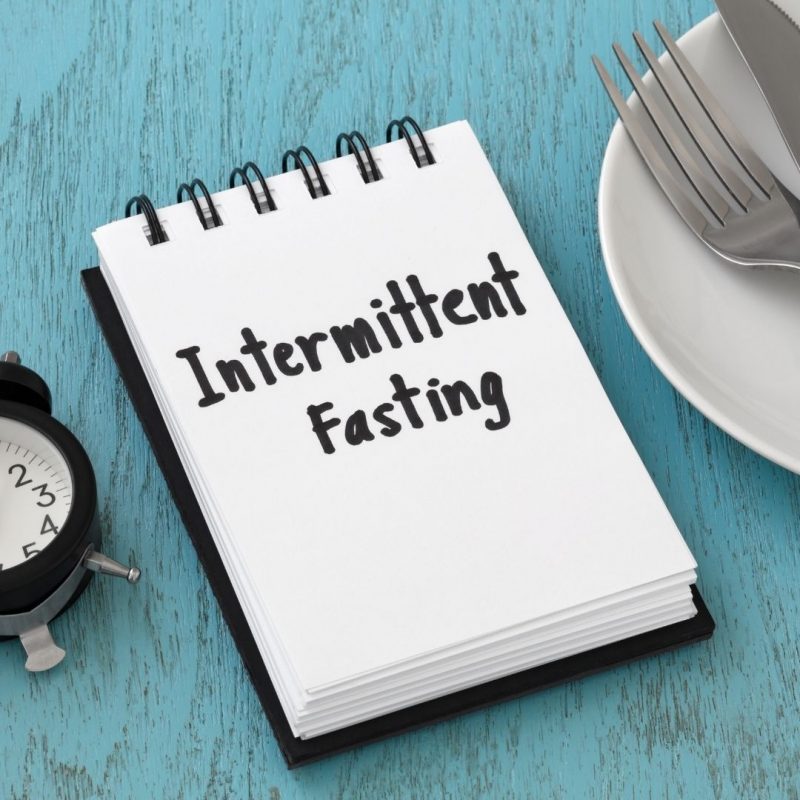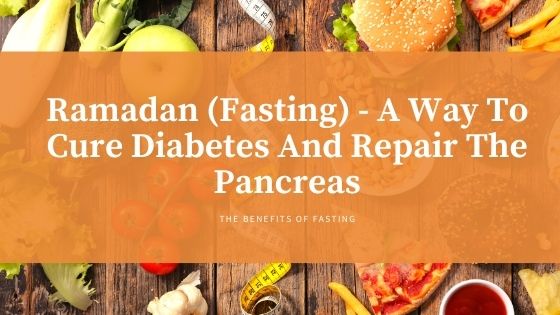The Hijab Diaries
Ramadan (Fasting) – A Way To Cure Diabetes And Repair The Pancreas
Could fasting that was prescribed by the Islamic Prophet Muhammad (saw) more than 1400 years ago hold the cure to one of the most epidemic diseases of the modern lifestyle?
Contents
Diabetes, Should I really care?

Currently, the number of people diagnosed with diabetes in the UK is estimated to be 3.5 million. It is predicted that up to 549,000 people in the UK have diabetes that is yet to be diagnosed. This represents 6% of the UK population or 1 in every 16 people having diabetes (diagnosed and undiagnosed)!
“34.2 million people, or 10.5% of the U.S. population, have diabetes. An estimated 26.8 million people – or 10.2% of the population – had diagnosed diabetes. Approximately 7.3 million people have diabetes but have not yet been diagnosed (2018).”
In 2018, an estimated 1.5 million new cases of diabetes were diagnosed among U.S. adults aged 18 years or older. This includes approximately 210,000 children and adolescents younger than age 20 years.
The global prevalence of diabetes among adults over 18 years of age has risen from 4.7% in 1980 to 8.5% in 2014. In 2012, an estimated 1.5 million deaths were directly caused by diabetes and another 2.2 million deaths were attributable to high blood glucose.
So there is no doubt that diabetes is right there amongst the most dangerous killers of humans in the modern World along with Cancer & HIV/AIDS.
Thankfully, Diabetes can be treated and prevented successfully in many cases with the proper diet/exercise protocol.
One very small study included three men who had had type 2 diabetes for 10-25 years. With medical supervision, the men fasted every other day or 3 days a week. Within a month, all of the men were able to stop taking insulin. And in less than a year, they were able to cut down on or stop other diabetes medications. In another small study, 10 obese men with type 2 diabetes followed a time-restricted eating plan. They improved their fasting glucose and lost weight over 6 weeks.
So what exactly is Ramadan?

In the current political climate, most people would know what Ramadan means. However, for those who are not sure, Ramadan is a month in Islamic Calendar also known as Hijri Calendar in which Muslims fast throughout the month.
Muslims refrain from drinking and eating from sunrise until sunset during these fasts. This month usually culminates with a special day known as Eid which marks the end of Ramadan and is considered a day of joy in Islam.
Interestingly fasting has not been prescribed for health reasons in Islam, instead, it is mentioned as a pillar of Islam through which Muslims can get closer to Allah.
Throughout Islamic history, pious Muslims used to not only observe fasting in the month of Ramadan but also observed lots of voluntary fasts throughout the year. In fact, some famous Muslim scholars were known to fast for a few days every month!
It is not known however whether they had found out about the health benefits of fasting as modern science has told us today.
Regardless, we should understand that our Creator only wants the best for us and commands us with only good things. Fasting is good for our minds, bodies, and souls.
When we eat properly and lightly we are reminding ourselves of what others go through when they cannot eat at all. This alone humbles us and also helps us rid ourselves of any excess in our lives. Many people eat so much more then is necessary for them without even realizing it.
What we know about the health benefits of fasting today!

We have known for a while beyond doubt that fasting does have a positive effect on the overall health of a person. The fasting that has mostly been the focus of scientific studies is intermittent fasting.
It is not a diet but simply what times you should eat and when you shouldn’t eat. Most ‘fasters’ use this 16/8 method where they would fast for 16 hours and then their eating window would be limited to 8 hours.
This is very similar to Islamic fast aka Roza/Sawm, the only difference you have already defined periods of time where you can eat and where you cannot.
I have personally been doing intermittent fasting for several years now. A few years ago I realised that I was gaining weight quickly. My analysis was that it was because I wasn’t as active as I was in my mid-20s but I was still eating the same amount of food.
Also as you start to get older, your metabolism slows down. So the same amount of food will easily make you obese if you don’t increase the amount of exercise.
For me this wasn’t an option, working on the business alongside a full-time job, exercising more than 4 days a week was just not possible. So I started with the meal that was the easiest to skip ie Breakfast for me!
The first few days it was slightly difficult but soon you get used to it. The best thing was I felt I had much more energy throughout the morning. A nice by-product was that I didn’t eat that much as I used to during lunch. I was able to not only maintain my weight but in fact shed a few pounds while being more energetic.
Please note that if you have any underlying medical condition, please make sure to consult your doctor before starting out such a regiment.
Well I am sure by this point you must be thinking that all above is just anecdotal evidence, so here we go with some studies that prove the benefits of fasting.
Several studies have shown that during fasting, our blood sugar and most importantly Insulin levels take a dip whereas surprisingly Human Growth Hormone (HGH) increases! Studies have also shown that it is a very simple and effective way to restrict calories and burn fat which is hardly surprising as you won’t be eating for long periods of time.
I can personally attest to this fact that after a few days you hardly notice hunger during your fast. Also, you don’t feel that guilty binging on sugar-laden drinks or junk food later on 😉.
Studies on rats surprisingly also showed surprisingly that rats on fasting (near-starvation diets) actually lived longer and were much healthier in their old age than rodents that ate normally.

More studies are however being done to understand how exactly this happens. There is a theory though that proposes that fasting somehow makes our cells more efficient and hence help in better ageing.
Fasting has also been shown to have beneficial effects on Alzheimer and reduction of inflammation in the Brain. Fasting has also been found to improve mood as well as memory.

Again something as a personal anecdote, I have noticed that fasting has a positive effect on my mood, however memory and concentration seem to take a hit for me personally if fasting is longer than
but this is just me and your mileage may vary! Overall, fasting is incredibly beneficial and may be of use in assisting our bodies to heal/recover from various chronic diseases/illnesses.
Please talk to your doctor before attempting to make sure that it is right for you and your circumstances. Fasting is a beautiful way to live when done intermittently and without overeating and is highly recommended for most healthy people and even for those who are struggling with health issues so long as it is given the a-ok from their doctor.
Also, exercising in a fasted state can help to increase your weight loss, in sha Allah! This may be due to the fact that the stomach is empty and the body doesn’t have to burn through the carbohydrates/glycogen to get straight into the fat stores.
This is beneficial for those who may be overweight or just need to shed a few excess pounds that they may have. Fasting helps make our bodies more efficient at burning fat as our source of energy instead of sugars and glycogen.
Most importantly we cannot forget the spiritual benefits of fasting. “Allah’s Messenger said,
Whoever observes fasts during the month of Ramadan out of sincere faith, and hoping to attain Allah’s rewards, then all his past sins will be forgiven. (Bukhari)
This is the greatest thing a successful fast can give anyone! So not only, in sha Allah, will you look better and feel better if you do it right but you also have the potential to have all of your prior sins revoked. That alone should get anyone excited to fast in sha Allah!
In summary:
- Fasting can increase your HGH (Human growth hormone) substantially ~You may experience a dramatic mood boost through fasting
- Fasting may also assist with weight loss provided that you do not overeat during your eating windows
- Fasting during Ramadan is incredibly beneficial to your mind, body, and soul when done properly.
- Fasting may also help you reduce inflammation
Fasting can be used to assist those on insulin medications (in conjunction with being monitored by their doctor) - Fasting can help us remember those less fortunate and be grateful to Allah for all that we have ~Exercising while in a fasted state may increase weight loss when done properly
- Chance to have all previous sins forgiven when done with sincere faith and hoping for the reward from Allah


Pingback: Ramadan for Muslims with Tips and Free Download! » Hidden Pearls